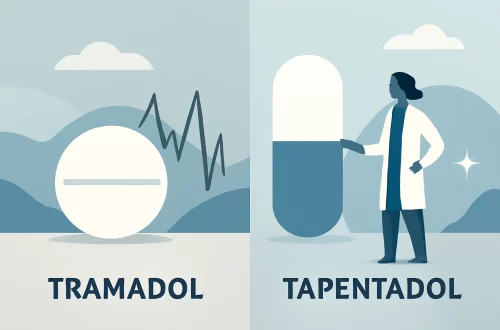
The Benefits of Low Sodium Protein Drinks for a Healthier Lifestyle
Low sodium protein drinks have gained significant attention in recent years as more individuals seek to adopt healthier lifestyles. With the rising awareness of the impacts of excessive sodium intake on health, many are looking for alternatives that not only support their nutritional needs but also align with their health goals. Protein drinks have long been a staple for athletes and fitness enthusiasts, providing an easy and convenient way to boost protein intake. However, many traditional options can be high in sodium, which can lead to various health issues, including high blood pressure and heart disease.
As consumers become more health-conscious, the demand for low sodium protein drinks has surged. These beverages offer a balanced approach to nutrition without compromising on flavor or quality. By reducing sodium levels, individuals can enjoy the benefits of protein supplementation while minimizing potential health risks. Furthermore, low sodium protein drinks cater to a broader audience, including those with specific dietary restrictions or health conditions. This shift towards healthier alternatives is not just a trend; it reflects a growing commitment to overall well-being and preventive health measures.
In a world where convenience often trumps nutrition, low sodium protein drinks provide a refreshing solution that supports a healthier lifestyle. Whether you are an athlete looking to optimize performance or someone simply aiming to maintain a balanced diet, these drinks can play a vital role in your daily nutrition.
Understanding Sodium and Its Effects on Health
Sodium is an essential mineral that plays a crucial role in various bodily functions, including fluid balance, muscle contraction, and nerve transmission. However, excessive sodium intake can lead to serious health issues, making it important to understand its effects on the body. The average person consumes much more sodium than the recommended daily intake, often through processed foods and beverages.
High sodium consumption is closely linked to hypertension, or high blood pressure, which affects a significant portion of the population. When sodium levels in the bloodstream increase, it causes the body to retain water, leading to an increase in blood volume and, consequently, higher blood pressure. Over time, this condition can result in serious cardiovascular diseases, including heart attacks and strokes.
Moreover, individuals with certain health conditions, such as kidney disease or heart failure, may need to limit their sodium intake even further. For these individuals, low sodium protein drinks can provide a safe and effective way to meet their protein requirements without jeopardizing their health. By choosing beverages that are lower in sodium, consumers can better manage their health and reduce the risk of associated complications.
It is also important to note that sodium is often added to foods for flavor and preservation. This means that many protein drinks on the market can contain surprisingly high levels of sodium, even those that market themselves as health products. Understanding ingredient labels and nutritional information is crucial when selecting a protein drink, as it allows consumers to make informed choices that align with their health goals.
In summary, while sodium is a necessary component of a balanced diet, moderation is key. Low sodium protein drinks offer a viable solution for those looking to reduce their sodium intake while still benefiting from the nutritional advantages of protein supplementation.
The Role of Protein in a Balanced Diet
Protein is an essential macronutrient that serves as the building block for muscles, tissues, and enzymes. It plays a vital role in the body’s growth, repair, and overall functioning. Including adequate protein in one’s diet is crucial for maintaining muscle mass, especially as we age. For individuals engaged in regular physical activity or strength training, protein becomes even more critical as it aids in muscle recovery and growth.
Many people struggle to meet their daily protein requirements through food alone, especially those following vegetarian or vegan diets. This is where protein drinks can be particularly beneficial. They offer a convenient way to increase protein intake without the need for extensive meal preparation. However, the challenge often lies in finding protein drinks that are not only high in protein but also low in sodium and other unhealthy additives.
Low sodium protein drinks provide a solution by delivering the necessary protein without the excess sodium that can lead to health issues. These drinks can be particularly advantageous for those who are mindful of their overall sodium consumption due to health concerns or dietary restrictions.
Moreover, protein plays a significant role in satiety. Including protein-rich foods and drinks in the diet can help individuals feel full for longer periods, which may assist in weight management efforts. By choosing low sodium protein drinks, individuals can enjoy the benefits of protein while adhering to a healthier sodium intake.
Incorporating a variety of protein sources, including low sodium protein drinks, can lead to a more balanced and nutritious diet. This approach not only supports physical health but also contributes to overall well-being.
Choosing the Right Low Sodium Protein Drink
When it comes to selecting the right low sodium protein drink, several factors should be considered to ensure that you are making a healthy choice. First and foremost, it’s essential to read the nutritional labels carefully. Look for products that explicitly state their sodium content and ensure it aligns with your dietary needs.
Additionally, consider the type of protein used in the drink. There are various sources of protein, including whey, casein, soy, pea, and hemp. Each type has its own unique benefits and drawbacks. For instance, whey protein is known for its high biological value and quick absorption, making it a popular choice among athletes. On the other hand, plant-based proteins like pea or hemp are excellent options for those following vegan diets or looking to reduce animal product consumption.
Another important aspect to consider is the presence of added sugars and artificial ingredients. Many protein drinks, particularly those marketed towards fitness enthusiasts, can contain high levels of added sugars to enhance flavor. Opting for drinks that are low in sugar and free from artificial additives can contribute to a healthier overall diet.
Taste and texture are also crucial factors. A low sodium protein drink should not only meet your nutritional needs but also be enjoyable to consume. Many brands now offer a variety of flavors and formulations, making it easier to find a product that suits your taste preferences.
Lastly, consider the convenience of the product. Some low sodium protein drinks come in ready-to-drink formats, while others may require mixing or preparation. Choose a product that fits your lifestyle and makes it easier to incorporate into your daily routine.
By taking the time to evaluate these factors, you can select a low sodium protein drink that supports your health and nutritional goals while enhancing your overall well-being.
Integrating Low Sodium Protein Drinks into Your Daily Routine
Incorporating low sodium protein drinks into your daily routine can be a simple and effective way to enhance your nutrition. Whether you are using them as a meal replacement, post-workout recovery drink, or a snack, these beverages can fit seamlessly into various aspects of your diet.
One of the easiest ways to integrate low sodium protein drinks is by using them as part of your breakfast. Mixing a protein drink with oats or adding it to a smoothie can provide a nutritious start to your day. This combination not only boosts your protein intake but also adds essential vitamins and minerals from fruits and grains.
For those who are active, consuming a low sodium protein drink post-workout can aid in muscle recovery and replenish lost nutrients. The timing of protein intake is crucial for muscle repair, and having a convenient drink on hand can simplify the process.
Low sodium protein drinks can also serve as a nutritious snack option during the day. When cravings hit, reaching for a protein drink can help curb hunger and provide sustained energy. This is particularly beneficial for individuals who may be prone to unhealthy snacking.
Moreover, low sodium protein drinks can be used creatively in various recipes. They can be added to pancakes, baked goods, or even soups to enhance the nutritional profile of your meals without adding excess sodium. This versatility allows for greater culinary exploration while maintaining health-conscious choices.
In conclusion, integrating low sodium protein drinks into your daily routine can significantly contribute to a balanced and nutritious diet. By considering various ways to incorporate these beverages, you can enjoy the benefits of protein while adhering to lower sodium levels.
—
**Disclaimer:** This article is not intended to provide medical advice. Always consult with a healthcare professional before making any significant changes to your diet or if you have health concerns.




